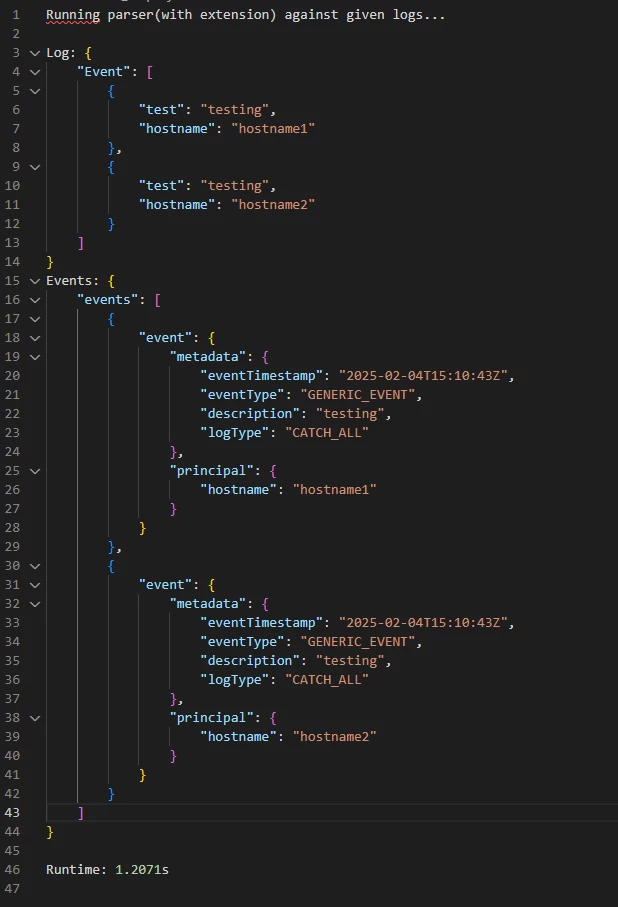Hi All,
I have already created a custom parser that works well for JSON object coming through logs. However, I now need to update the parser to support JSON arrays. but I'm unsure how to loop through a JSON array.
Sample log: [{"test": "testing","hostname":"hostname1"},{"test":"testing","hostname":"hostname2"}]
Any guidance or assistance on how to resolve this issue would be greatly appreciated.
Thank you!









